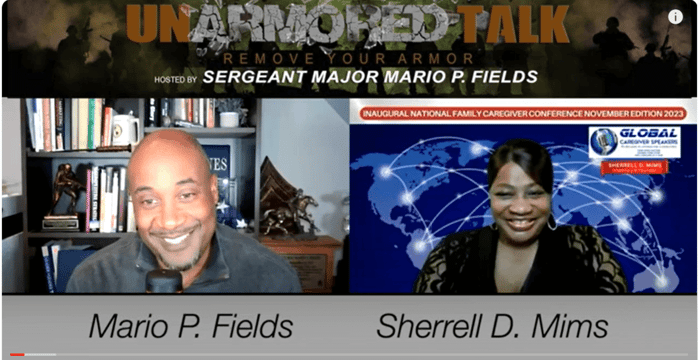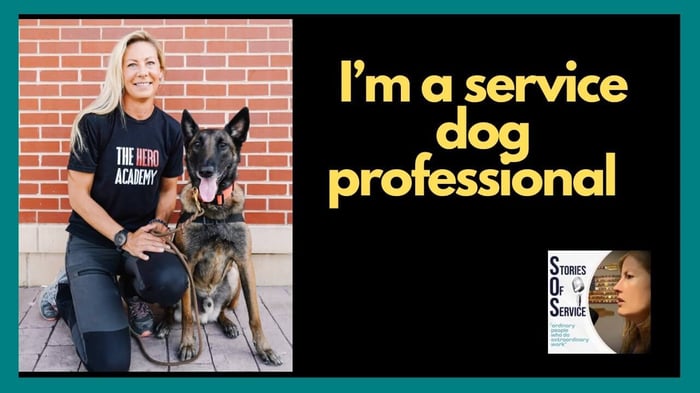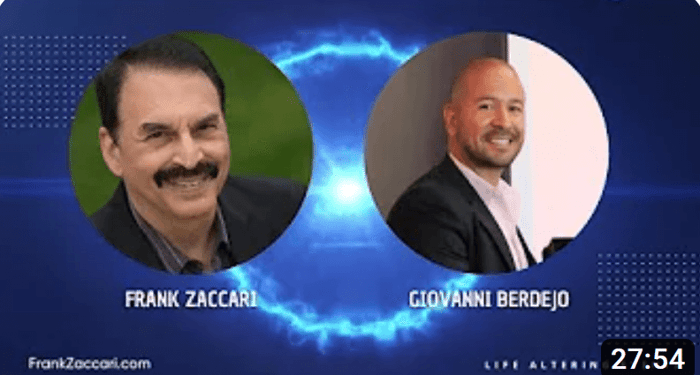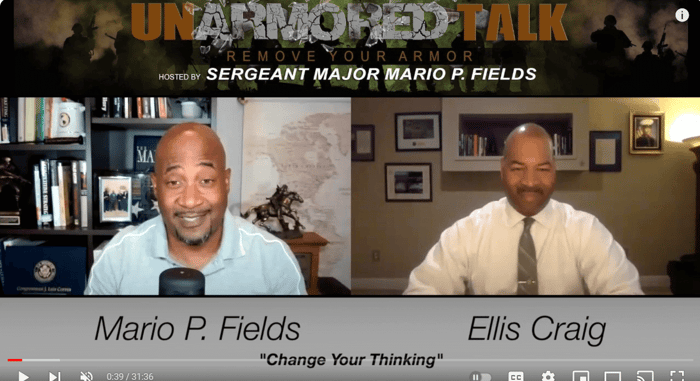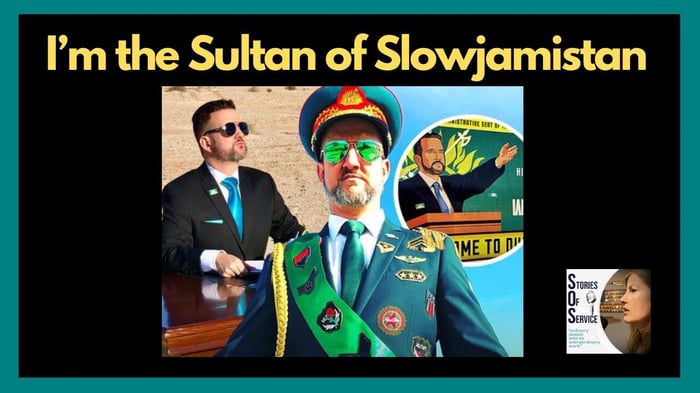In this episode, we embark on an inspiring journey, delving into the life of a remarkable individual who stood at the forefront of the battle against the COVID-19 pandemic. Our guest, Sherrell D. Mims, shares her incredible experiences as a frontline healthcare worker for her patients, providing invaluable insights into the trials and triumphs of healthcare professionals during these trying times.
In this episode of the Unarmored Talk Podcast, we are privileged to hear the incredible story of Sherrell D. Mims. She is not just any guest; she is a beacon of inspiration and resilience. Despite the numerous challenges thrown her way, Sherrell’s unwavering dedication and passion for caregiving during the COVID-19 pandemic shine through.
Meet Our Inspiring Guest: Sherrell D. Mims

Our guest, Sherrell D. Mims, stands as a beacon of hope and inspiration in challenging times. As the founder of Global Caregivers Network and the CEO of Global Caregivers Speakers and more, she has dedicated her life to supporting caregivers and those in need. With her profound passion for caregiving and her invaluable experience as a frontline healthcare worker during the COVID-19 pandemic, Sherrell brings a wealth of knowledge and empathy to our conversation. Her unwavering commitment to patient advocacy and her remarkable resilience in the face of adversity make her an exceptionally inspiring guest on our show.
🔑Key Takeaways:
- A Healthcare System in Crisis: The pandemic had far-reaching consequences on patient care, with hospitals pushed to their limits. Overcrowding and understaffing became grim realities, pushing the healthcare system to the brink. In a desperate bid to bridge the healthcare personnel gap, retirees were called back into service. The heart-wrenching stories of burnout and some colleagues succumbing to the trauma and stress serve as a poignant reminder of the sacrifices made in the line of duty.
- Personal Reflections and Resilience: Sherrell's journey takes center stage as we explore her personal experiences and emotions during this critical period. The narrative underscores the importance of self-care and the remarkable resilience required to continue delivering care to patients amidst overwhelming circumstances. Her unwavering dedication to her role as a caregiver and her passionate commitment to the well-being of her patients shine through in every word.
- A Beacon of Hope: Sherrell stands as a testament to the power of passion and commitment. Having founded not one but two successful companies, Global Caregivers Network and Global Caregivers Speakers and more, she is on a mission to support caregivers and provide care to those in need.
- Self-Care as a Priority: One key takeaway from Sherrell's story is the importance of self-care. She emphasizes the significance of making oneself a priority, especially during challenging times. Her ability to stay strong and persevere through the storm was in part due to her commitment to maintaining her own well-being. She stressed the value of drinking water, regular exercise, a healthy diet, and adequate rest.
🌟 Highlights:
The Harsh Reality in Healthcare: Sherrell's journey commenced in March 2020 when the world was gripped by the COVID-19 pandemic. The situation was grim, with hospitals overwhelmed, healthcare staff stretched to their limits, and a dire shortage of personal protective equipment (PPE). The emotional toll on healthcare workers was undeniable, resulting in some of her colleagues leaving their jobs due to the overwhelming stress and trauma.
The Call to Care: Sherrell made a resolute decision to remain on the frontline. Her profound commitment to patient advocacy and the genuine compassion she held for those in need drove her to continue her mission. She saw each patient as more than just a medical case; they were individuals deserving of care and kindness.
A Passion for Caregiving: Sherrell's journey is a testament to the power of passion. Her profound love for caregiving, for taking care of people, and her determination to make a positive impact in their lives were unwavering. Despite the adversity, her spirit remained unbroken, and she continued to provide care when it was needed the most.
Turning Adversity into Success: Sherrell's journey didn't end with surviving the storm. In fact, it was just the beginning. She went on to establish two remarkable companies, the Global Caregivers Network and Global Caregivers Speakers. These organizations are dedicated to supporting caregivers and sharing their stories. Sherrell's unwavering determination and passion led to the creation of these impactful ventures.
Listen to Podcast:
Watch Podcast:
Resources:
➡LinkedIn: https://www.linkedin.com/in/sherrell-d-mims-global-caregivers-network-llc-577566238/
➡Website: https://www.globalcaregiversnetwork.com/
➡Email: [email protected]
➡Cell: 260.218.3377
- Watch: Unarmored Talk Playlist
- Mario's Socials: Parade Deck
- Support My Nonprofit: Still Serving, Inc.
- Email: [email protected]
Thank you for listening, sharing, and watching!
Transcripts by Buzzsprout
(00:00)
Welcome back to unarmored talk podcast. Thank you so much for listening and watching each episode and continue pleased to share with your friends and family members and colleagues and don't forget to leave a rating or review if you feel this is a awesome show and you can connect to all of my social media on the parade deck just look at the show notes or you can put in the search engine Mario P.
(00:26)
Fields parade deck and get all access to my social media. Well, let's get ready to interview another guest who is willing to remove their armor to help other people. Today we have another guest who is willing to remove her armor.
(00:42)
I don't even consider her a guest everybody. I seem like I've known Charelle. Let's just jump right into it. Charelle D. Mims give it up everyone. Thank you. Thank you. Thank you, Mario. We've been trying to get this thing, you know, this episode since what 1905.
(01:00)
That is correct. And here we are 2023 fast forward. Here we are. But before you guys know the deal before I get to the professional introduction. Again, don't forget to get on that Apple podcast platform.
(01:17)
Leave that rating or review. That's the only way I can get better. I mean, because if you guys don't leave anything, I guess you're saying I'm great. And that's your belief. But I don't believe that.
(01:27)
I believe there's always room for improvement. And again, thank you for that YouTube channel support. As you guys know, everything's monetized every time you share. You watch a video, you even click on a thumbnail.
(01:41)
You are generating funds that's donated to SteelServing Incorporated. That's www .SteelServingEat .com and continue to help me and our amazing volunteers and partners make a difference in Pitt County, North Carolina.
(01:57)
Everyone, Charelle. She is the founder of Global Caregivers Network. She's also the founder and CEO for both companies of Global Caregivers Speakers and more. Charelle, welcome to the show. Thank you so much, Mario.
(02:18)
What a great introduction, Mario. Thank you so much for having me. It's a pleasure to be here. Oh, boy. I'm happy. I was worried, you know, to deal with it there's some people that your feedback matters.
(02:31)
Now everyone's feedback matters, but there's a little higher metric on Charelle's. Can you tell the listeners and viewers is a little bit about yourself? Absolutely. So as Mario said, I am Charelle D.
(02:44)
Nams. I am the founder of Global Caregivers Network, which was established in June of 2021. From there, we came out of Global Caregivers Speakers, which was established on Christmas Day 2021. Let me just share a little bit about Global Caregivers Network.
(03:05)
This network is exclusively for caregivers, professional healthcare workers and family caregivers. Then the speaker part of it, the Global Caregivers speakers, that's all about bringing your wonderful story, your journey and what you have done as a caregiver for what?
(03:25)
In a professional world, as we say, and a loved one at home or neighbor or friend, it doesn't just have to be a loved one to be a caregiver. Those are the main things that's going on in the Global Caregiver world.
(03:43)
There are, what is it, 53 million, and don't quote me please, 53 million plus unpaid caregivers of one person. Around the world. And I'm telling you right now, you know someone that is a caregiver or you yourself may be a caregiver.
(04:04)
So either way, you fit in that caregiver spectrum. So what do we go from here? Mario. Wow, 53 plus million and more. You know, let's jump right to the topic. We talk about caregiving and you, from what I've seen, Shirelle, you've done an amazing job.
(04:29)
I mean, last year's Global Conference was just amazing and exceptional. But let's get into it. The pandemic, you mentioned 2021, right? The year 2021 and when you launched, you started both companies in the midst of kind of the height of the pandemic.
(04:48)
Yes. From my basic understanding, you were either a registered nurse or you were in the hospital for three years. front lines, caregiving, if you will, for people that were directly impacted by the pandemic.
(05:06)
Talk to us about that. Sure, thank you so much for that question, Mario. And you're absolutely right. I was right there in the midst of it. I wanted to jump ship myself, but I didn't, okay? I'm telling you, it was so horrific.
(05:21)
Let's go back. When the pandemic first started, back in March of 2020, when they declared the official date, March 10th, I'll never forget it, March 10th, 2020, official date for the COVID -19. I'm telling you, it was so bad.
(05:41)
It was so horrific. We were in the hospital. It was just, everything was just aloof, if you will. Nothing was organized. Everybody just running around. We did the best we could with what we have. What do I mean by what we have?
(05:56)
We did not have enough PPEs, the personal protection equipment. What does that consist of? Our gowns, gloves, hair nets, shoe covers, goggles, whatever we needed to protect ourselves from what the virus was at that time, right?
(06:14)
Didn't have enough equipment. It was so horrific and so personal to me. I literally just wanted to jump ship. For real. It was so much going on. The ERS was overpacked and we didn't have enough staff.
(06:32)
They had declared for retirees to come back to work. Oh, wow. Yeah, yeah, yeah. It got real bad. I was here some time. It was just so horrific. So kind of like similar to the military. So essentially what I'm hearing, Charelle, is that you guys were so overwhelmed with, you know, patients that they recall when I say beta hospital recalled retirees to come help.
(07:02)
Is that what that would happen? That's exactly what happened. Not just the hospitals. I guess it was the state. If you will, they had to call in retirees and those as whatever they was doing, they needed them to come back to assist us.
(07:18)
It was too much. It was just overwhelming. It was frustrating. A lot of my coworkers got all of us got fatigued. We got burnt out. I mean, because we had to wear the whole nine, the whole nine, the mask, the shield, the gargle, we couldn't even take it off.
(07:35)
We had to wear the whole 12 hours. The only time we took it off was when we took a break. And that was just to go eat, lunch, break, sit down, cry, whatever we had to do. And family members, remember they shut off all the family members coming in and out of the hospital.
(07:51)
Everything was shut off. And it was for our benefit, right? staff, we had to protect ourselves the best way that we knew how by doing what they come out with the vaccine. Well, no comment on that. However, we had to get it, right?
(08:10)
Because we was in that space where it was active with the virus, we had to get the vaccine, we had to get the booster, and then there was other series that came from out of that, other strands, if you will, that came from that original vaccine.
(08:29)
And so all of us dealing with this, right, Mario? And you're listening, all this, for my fellow colleagues, my essential workers, I'm not just talking about nurses, I'm talking about doctors, CNA, certified nurses assistant, patient care technician, home health aides, everyone was an essential worker, right?
(08:50)
Not just nurses. Yes, we was at the core of doing everything. But we needed all hands on deck. It was so horrific. And guess what? The people, if the audience, if you will, the public, they did not even experience half of what was going through in the house.
(09:12)
And that's why I was going to bring up, too, listening to you, even your help and me gain a better understanding of what was going on outside of the news and reporting. And if you had to put paint a picture, if you will, I would kind of use that metaphor.
(09:29)
But what was your patient load average prior to that? Like, what was the numbers prior, roughly? OK, so let's take me. I do, at that time, I was doing psychiatric nursing. We had five patients per nurse, which is not bad on the psych unit.
(09:48)
We could get up to six, right? On a psych unit that I was working on, they maxed, I believe, 20 patients, which was good. Going through the pandemic, though, it got worse because, guess what? My colleagues had started getting coming down with the disease, the virus themselves.
(10:11)
So guess what? That left us short, right? And now we're taking on more patients. And the more patient load, the more stress you become, the more fatigue. Because, remind you, we have to put these garbs on every day coming to the unit before we even came to the unit.
(10:32)
We had to put on all these garbs and then go out there. We rarely took a break because any time you took a break, you have to take off your mask and your shield. But you couldn't even take off everything.
(10:44)
And of course, you're taking off your gown. But it was just, I wish I could have pictures to show you how horrific it was. Just from the time we walked through the door, Mario, going in, clocking, and then putting on the guard.
(10:58)
It did remind me of the army. It did remind me of the military. It was like we was actually getting ready for the battle. Wow. Because the battle was before us. What a metaphor. You know what I'm saying, Mario?
(11:10)
Because that was so real. We was literally getting ready for a battle. Yeah, so you're saying essentially, and thank you by the way, Cheryl. Absolutely, you're welcome. So to the point it was so overwhelming that like you said, it was before the pandemic, it was easy to go, yeah, we're averaging about five, no more than 20.
(11:31)
You know, we're now you're so overwhelmed, you can't even put a number to it. Correct. And mind you, they did stop taking patients. The patients that were there, they stayed there, right? We didn't admit no more patients.
(11:45)
That was it. They can leave. We was discharging, but we were not admitting any more patients. Because guess what? They was all coming through the ER. and most of them was coming through the ER, had came down with the virus.
(11:59)
And of course, we were not admitting patients that had the virus, right? We're containing what we already have on the unit. But it was very, very horrific. It was very frustrating. It was very, we just got burnt out.
(12:17)
We got burnt out. Did you have any colleagues that just quit? They absolutely did. They jumped ship. I'll tell you, it reminded me so much of the military. They jumped ship because I think what's going on is some kind of stimulus or some kind of money came through.
(12:35)
But they said you can sign up for this money. A lot of them went out. Guess what? I can relate this to the military so good because we. It was not good. I know. And then wait, wait a minute, Mario. But it was not good because they jumped ship.
(12:56)
They jumped ship with what? P .T .S .D. They were so traumatized. I'm telling you, you know, what is what it is. And that's why I'm glad we're doing this episode because in it is fitting with an armadillo podcast where all human beings will experience a an emotion or multiple emotional events while living.
(13:17)
It's how you think through them. And let's talk about that. And that's why I asked the question because you did not. So how did you, you know, what emotions that you experienced? And then how did you think through them at this critical moment where you are still Sharrell Milms in the fight saving lives?
(13:39)
Come on. Mario and your wonderful audience, let me tell you, you all didn't see me crying, right? You didn't see me behind the curtains. Just on my knees. You know, I'm saying, praying to God, let's.
(13:55)
this thing pass over us, right? You didn't see all that. I'm praying, I'm crying. My colleagues tonight, we were going to back in our little room, then we couldn't even stay long, right? But we were actually prayed together, cried together.
(14:08)
You know what I'm saying? We would sit down for a minute and be like, girl, how are you feeling? Brother, how are you feeling? What's going on in your mind? A lot of us, we had, it was so emotional. For me, I'm telling you, I was burnt out.
(14:22)
I was crying. I was, I was literally bawling because it had overtaken us. It was something that has, number one has never happened, right? It overtook us. You know what I'm saying? It just came in and this overtook us.
(14:38)
It's like a dark cloud just came over the hospitals. Right. And the administration, they was doing the best they could to get the proper equipment that we needed. Some days we just had to wear the same stuff over, right?
(14:54)
Patients didn't know we knew it, but we did the best we could with what we had. But I'm telling that was the most emotional time in my life. Not even have my baby. And how did you? And I want to know, how did you think?
(15:11)
Like, what was it about you that you thought? Like, what changed that you did not jump ship per se and you stayed in there? You know what? The patience. I stayed for the patient. Somebody had to be there.
(15:27)
Everybody couldn't jump ship. You know what? Everybody. When you say I want, when you say I wanted to marry, don't get me wrong. But I have to think of this. I could not do it. I could not do it. Why?
(15:47)
Because I love what I do. Wow. This is my passion. Taking care of God's people, taking care of people, period. We didn't even got to put an acronym to we even got to put the word to it. Being nice to people, being kind to people.
(16:04)
And guess what? They was the most vulnerable. The patients. We was the ones coming in from the outside. They was already in the hospital. So I played my part as a patient advocate. I made sure they had everything they wanted, everything they needed.
(16:24)
It did not matter if I had to sit there and talk to them for a minute. That's what I did. Because remember, this is emotional for them too. They got family members that could not even come see them. Right.
(16:37)
They couldn't come in. Nobody coming in. Nobody leaving out. And so all of that was going on at that time. I was just so glad when they said it was over. But guess what? It's still not over. Yeah, they're still coming through the ER.
(16:55)
They're still coming. Yes, they're still coming through the ER. And I still wear my mask, Mario. Yeah. And I love everyone. I love you guys didn't catch it. I'm going to, you know, just inspired by Charelle.
(17:12)
Did you guys hear the power of passion? You know, Charelle talked about all of the catastrophic events, the unknown, things that would just have people jumping ship. And the dead man. Oh, my gosh, but the power of passion.
(17:28)
And I love Charelle, how you took the perspective of the patient, where you said, not only is it me caregiving for these patients during this very traumatic time, but let me put myself in their shoes, in their shoes, which was a choice, if you will.
(17:46)
Looking back, I mean, you built two amazing companies. You look at you, right? I won't say survived. You were thriving. Thriving, yes. Come on. You were thriving through some of the world's most challenging moments when it comes to the health care industry.
(18:06)
In our lifetime, I mean, I know I turn 75 next week, but. Come on. Yes, but it was so real, baby. But looking back, if you had one thing that you can give our listeners and viewers one tip that you can give them as they face either current or future life challenges, what would you give them?
(18:30)
Number one, we can't speak enough about taking care of you. Make yourself a priority. Just think, Mario, if I didn't have the stamina that I did because of what I do, I take care of me. You know what I'm saying?
(18:47)
I take care of me, self -care, drink my water, do my exercise, eat the right food, right? I'm telling you, don't take any medications. I had that stamina. But when I look at my colleagues, they jump ship.
(19:02)
I'm not saying they didn't have the stamina. I'm just saying, look at me. I'm still standing through the storm. Same way in the military. Some going to make it, some are not. Some jump ship, some do not.
(19:16)
Those to have the stamina, it's a reason why I'm still here. Because look what happened, as you said, Mario, two wonderful companies came out of it. The Global Caregivers Network, Global Caregivers Speakers, these caregivers, Facebook groups, are exclusively for caregivers.
(19:38)
That's my whole focus. That's my whole passion. That is my DNA, taking care of others. I know I'm a servant of God. leader. No, well, I tell you what, you've definitely taken care of me over last year and some change.
(19:53)
And I've personally witnessed you take care of a lot more people globally, which is fitting for, you know, the company names. I know you are having fun. So, you know, I stopped saying people are busy years ago because the guests on this show, they're having fun making an impact.
(20:11)
So thank you for appearing on the Unarmored Talk podcast. Thank you for sharing with the listeners and viewers. And you guys heard it, self -care. Put yourself first. It can make a world of difference, but it's a choice.
(20:24)
And you have to think through it. Like Charelle did. How can people connect with you? Charelle was the best way for people to connect with this awesome caring person who's doing great things. I'm telling you, man, and I ain't joking.
(20:38)
I'm not joking. I couldn't find you. They emailed me. Charelle at Global Caregivers. And you can always go on the website, globalcaregivers .com. And guess what? I'm old school, I love talking on the phone.
(20:58)
2602183377. Let's talk about it. I'm telling you, if you're a caregiver, connect with me and connect with us and get your Eventbrite ticket. We have a wonderful and inaugural National Family Caregivers Conference coming up November the 10th and 11th.
(21:21)
Be there, we got some us. I'm telling you, we got some headliners. Mario was there last week, I mean last week at our last summit, it was, I'm telling you, it was phenomenal. You have to be there. If you're a caregiver or you know someone that is a caregiver, show up, support us.
(21:39)
It's a virtual experience. So we look forward to you being there. Connect with me. Thank you so much, Mario. It's always a pleasure coming on and sharing the good news with the people. No, thank you again so much, Charelle.
(21:54)
And guys, you guys know the deal. We're all human beings. We're born emotional. We're everything's emotional. But to think is a choice. And hopefully these episodes and many more to come will help you develop potentially a precise or accurate way of thinking through life events.
(22:11)
See you guys in a couple of weeks, but you guys know how I sign off. God bless you. God bless your families. And God bless your friends. Charelle, be safe. Thank you, Mario. Thank you for listening to this most recent episode.
(22:26)
And remember, you can listen and watch all of the previous episodes on my YouTube channel. The best way to connect to me and all of my social media is follow me on the Parade Deck. That is www .paradedeck .com or you can click on the link in the show notes.
(22:44)
I'll see you guys soon.
